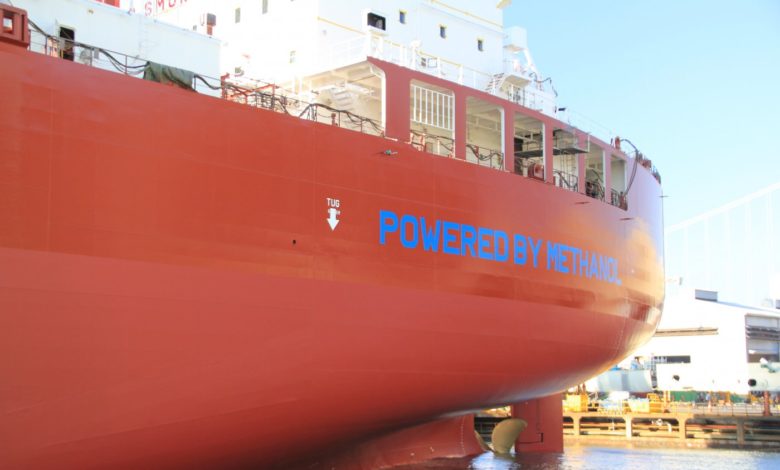Methanol backer takes swipe at proponents of hydrogen

The backers of hydrogen as an alternative fuel for shipping to meeting its 2050 decarbonisation pledge have come in for criticism from trade association, the Methanol Institute.
An ongoing survey carried by sister title Maritime CEO has hydrogen-powered fuel cells out in front among owners and managers as the most likely alternative fuel for shipping to meet its CO2 cut commitments by 2050.
However, Chris Chatterton, chief operating officer, at the Methanol Institute has slammed hydrogen’s potential as unwieldy and expensive.
While backing the development of fuel cells, Chatterton stressed that they should not be powered by hydrogen.
Fuel cells have distinct technical advantages over conventional batteries, which have a much shorter operational life and are challenged by problems of raw materials sourcing, recycling and disposal, Chatterton observed.
“In a marine application, the difference between batteries and fuel cells could be compared to the difference between using a scrubber and burning gasoil. The scrubber is there to treat the waste stream to an acceptable level, not to eliminate it, just as the production of and charging of batteries could be with power produced from a dirtier fuel, or with disposal in a non-environmentally friendly manner,” Chatterton told Splash.
Interviewed by Splash, the methanol promoter then took aim at hydrogen, pointing that when that fuel is delivered at scale it tends to cryogenically – chilled to -253, 92 degrees colder than even LNG. This, Chatteron pointed out creates potential space, operational and safety issues.
“As one of the coldest cryogenic gases, hydrogen places system components and materials under extreme stresses. The only other way to supply the most abundant gas on the periodic table is in compressed form, but as hydrogen is also the lightest gas, compressing it to a level which would allow for it to be stored cost effectively and safely is perhaps its Achilles heel,” Chatterton said.
A recent DNV GL report noted that high costs, increased storage space and the ‘chicken and egg dilemma’, akin to LNG, are among the current challenges for hydrogen as marine fuel. Additionally, regulations for storage of hydrogen as fuel on ships do not presently exist, making class approval more complicated and costly.
“Pilot projects are underway but news headlines describing it as ‘a reality’ should be taken with a pinch of salt,” Chatterton said, claiming that hydrogen would only be competitive as fuel under the assumption of massive subsidies, or of heavy taxes on conventional fuels.
Chatterton then made the case for methanol fuel cells. Liquid methanol at ambient temperature and pressure packs 40% more H2 by volume than hydrogen in a liquid state (-253C) and 140% more H2 than compressed hydrogen at 700 bar, according to the Methanol Institute.
“Rather than incur the cost and complexity of hydrogen, methanol could be re-formed onboard ship and consumed as hydrogen in fuel cells or internal combustion engines,” Chatterton suggested.
Using an increased level of blending for renewable methanol in fuel cells or internal combustion engines burning methanol would effectively drive the shipping industry towards zero “in sector” carbon emissions as well as zero sulphur and negligible nitrogen and PM emissions, Chatterton claimed.
Coastal and short sea vessels, ferries, inland waterway vessels as well as ports and harbour craft are best suited to adopt methanol as a liquid fuel or use it to power fuel cells, according to the Methanol Institute.
“By itself, methanol is not going to decarbonise the shipping industry but this safe, simple, highly versatile alcohol has the ability to support the shipping industry’s transition to a cleaner future without delay. It can also support the adoption of new technologies such as fuel cells without any of the issues holding back hydrogen,” Chatterton concluded.
Maritime CEO will be publishing in association with Cockett Marine Oil a special IMO 2020 fuels and lubes magazine later this month where both hydrogen and methanol are under the spotlight.

In regards to hydrogen fuel cells this is worth reading: Exclusive: Toyota Hydrogen Boss Explains How Fuel Cells Can Achieve Corolla Costs http://www.thedrive.com/tech/26050/exclusive-toyota-hydrogen-boss-explains-how-fuel-cells-can-achieve-corolla-costs